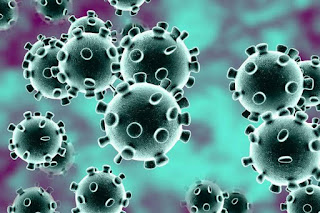Simply put, the Wuhan coronavirus is new. It's
something that hasn't been seen before, and people are afraid of the unknown.
?What If the virus spreads
According to reports,
it appears that only 3% of people who get sick actually die. And it's riskiest
in older people in relatively poor health.
Both the coronavirus and the flu can
be transmitted from person to person via coughing and other close contact
Influenza rarely gets this sort of attention,
even though it kills more people each year than any other virus.
-If people aren’t afraid of the flu, perhaps
that’s because they are inured to yearly warnings. For them, the flu is old
news. Yet viruses named after foreign places – such as Ebola, Zika and Wuhan –
inspire terror
- Some doctors joke that the flu needs to be
rebranded. “We should rename
influenza; call it XZ-47 virus, or something scarier
-Familiarity breeds indifference, “Because it’s new, it’s mysterious and comes from an exotic place, the
coronavirus creates anxiety
-So far, experts report that
the median age of those who have
died from the Wuhan coronavirus is around 75. Many of these
individuals had other health issues like high blood pressure, diabetes, and
Parkinson's disease.
What is coronavirus?
Coronaviruses,
according to the World Health Organization (WHO), are a large family of viruses
that can cause a range of illnesses, from the common cold to Severe Acute
Respiratory Syndrome (SARS) — the latter of which also began in China and
infected some 8,000 people during a 2002-2003 outbreak. At least 770 died after
it spread to other cities and countries across the world.
Coronaviruses can
spread between animals and people — meaning they are zoonotic. Officials have
said the current outbreak likely began at an animal and seafood market in
Wuhan.
How to protect yourself and your family?
If you traveled to
China on or after Dec. 1, 2019, and feel sick with fever, cough or difficulty
breathing, you should:
•
Seek medical care right away. Before you go to a doctor’s office or emergency
room, call ahead and tell them about your recent travel and your symptoms.
•
Avoid contact with others.
•
Not travel while sick.
•
Cover your mouth and nose with a tissue or your sleeve (not your hands) when
coughing or sneezing.
•
Wash hands often with soap and water for at least 20 seconds. Use an
alcohol-based hand sanitizer if soap and water are not available.
These
include getting a flu shot, avoiding those with the flu, washing your hands,
covering coughs/sneezes in your elbow/sleeve and, if ill, staying home until
you are fever-free for 24 hours. If you do become ill, seek medical attention
within the first 48 hours of symptoms.
Read also 17 natural ways to stop panic attacks
Treatment
There are no specific treatments for illnesses caused by human coronaviruses. Most people with common human coronavirus illness will recover on their own. However, you can do some things to relieve your symptoms
- take pain and fever medications (Caution: do not give Aspirin to children)
- use a room humidifier or take a hot shower to help ease a sore throat and cough
If you are mildly sick, you should
- drink plenty of liquids
- stay home and rest
- Direct exposure to sunlight will naturally kill the virus (Vit. D)
- Garlic and lemon in hot water are natural antiviral medicine (Vit. C)
If you are concerned about your symptoms, you should see your healthcare provider.
Because it’s new, it’s mysterious and comes
from an exotic place, the coronavirus creates anxiety. Don't forget that When we allow the imagination to run free we may find
that it throws up some frightening ideas &The fear of having such a panic attack can be almost as bad as the panic
itself
